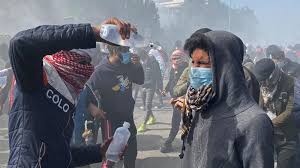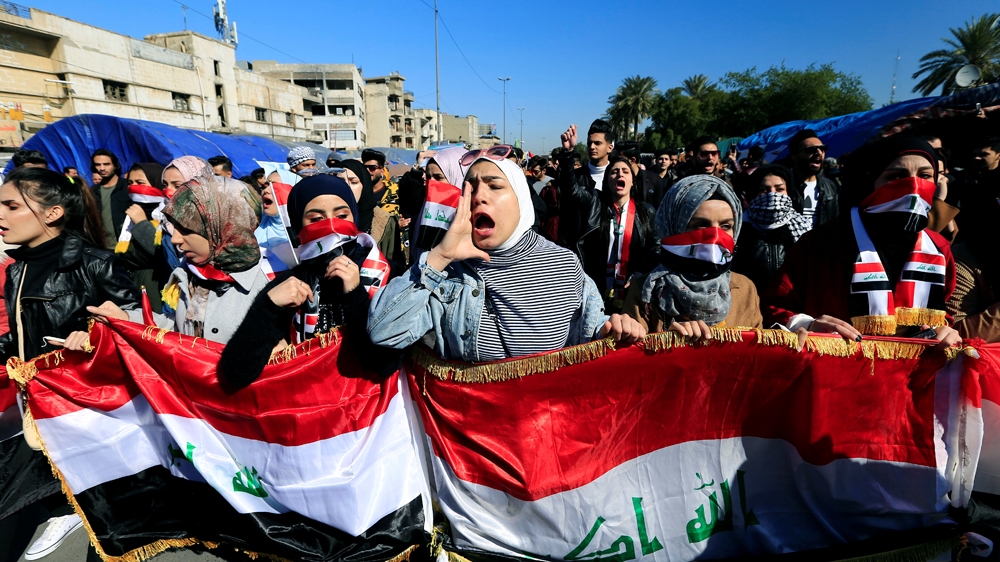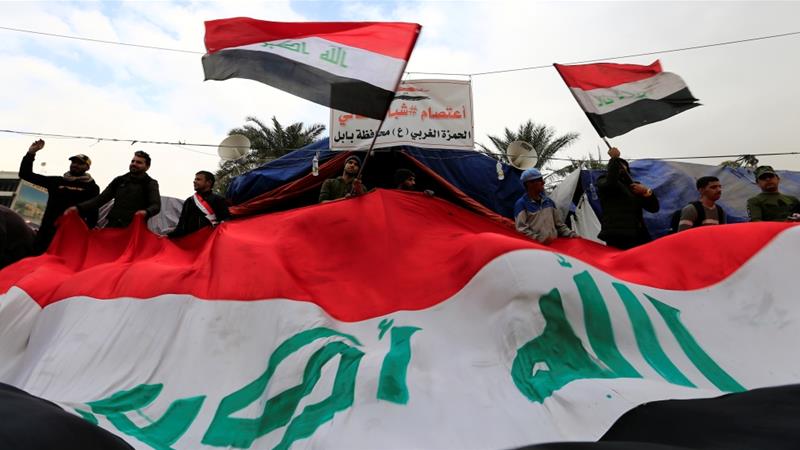The US embassy in Baghdad's heavily fortified Green Zone came under attack from rocket fire on Sunday evening.
Five rockets crashed into a riverbank near the embassy in the Iraqi capital without causing any injuries, the US Joint Operations Command said in a statement, but AFP news agency citing a security source said three of the rockets "directly hit the US embassy". One slammed into a cafeteria at dinner time, it added.
It was the third such attack on the US embassy this month but was the first time the complex had been directly hit. It was not immediately clear who was responsible.
Prime Minister Adel Abdul Mahdi swiftly condemned the attack in a statement, calling it an "aggression" that could "drag Iraq into becoming a war zone".
In a statement, the United States urged Iraq to protect the embassy.
"We call on the Government of Iraq to fulfill its obligations to protect our diplomatic facilities," a State Department spokesperson said in a statement.
One killed, more than 100 wounded
Meanwhile, one protester was killed in Baghdad, police sources told Reuters news agency, and more than 100 demonstrators were hurt in violence in the capital and several other cities after the security forces tried to clear sit-in protest camps.
Medical sources said 75 of those hurt were in the southern city of Nasiriyah, where a witness told Reuters protesters set fire to two security vehicles, and hundreds of other demonstrators controlled key bridges in the city.
The protesters are demanding the removal of what they consider a corrupt ruling elite and an end to foreign interference in Iraqi politics, especially by Iran.
Unrest resumed last week, after a lull of several weeks, following the January 3 US drone strike that killed General Qassem Soleimani and Abu Mahdi al-Muhandis, an Iraqi commander of the pro-Iranian Hashd al-Shaabi militia group.
The killing, to which Iran responded with ballistic missile attacks on two Iraqi bases hosting US troops, has revived tensions in Iraqi politics and delayed the formation of a new government.
Amid growing calls for an end to interference, the Iraqi Parliament on January 5 backed a nonbinding resolution for all foreign troops - including 5,200 US soldiers - to leave the country.
At least 12 demonstrators have been killed since Saturday, the Iraqi High Commission for Human Rights said, with three in Nasiriya, and nine in Baghdad province.
In total, at least 500 protesters have been killed since October.
Nationwide protests
In Baghdad, protesters were coughing and washing their faces and eyes to rid themselves of the effects of the gas while medical workers provided first aid, as the site was inaccessible to ambulances, a Reuters reporter said.
Tuk-tuks evacuated wounded protesters amid clouds of tear gas and black smoke from burning tyres.
Earlier on Sunday, hundreds of university students gathered in Tahrir Square, the main protest camp, chanting slogans against the United States and Iran.
In the southern city of Basra, more than 2,000 students arrived at a protest camp, another Reuters witness said.
Protests also continued in the cities of Karbala, Najaf and Diwaniya, despite attempts by security forces to end their months-long sit-in, police sources and Reuters witnesses said.
Shia leader cancels march
Tens of thousands protested against the US military presence in Iraq in a march on Friday.
Leading Shia leader Moqtada al-Sadr had called for demonstrations against the US in Baghdad and other cities on Sunday but cancelled them with his office giving "avoiding internal strife" as the reason.
Sadr, who has millions of supporters in Baghdad and the south, said on Saturday he would end his involvement in the anti-government unrest.
Sadr's supporters have bolstered the protesters and at times helped shield them from attacks by security forces and unidentified gunmen, but began withdrawing from sit-in camps on Saturday following his announcement.
The Iraqi High Commission on Human Rights called on all sides to exercise self-restraint and keep the demonstrations peaceful.
SOURCE: Al Jazeera and news agencies





